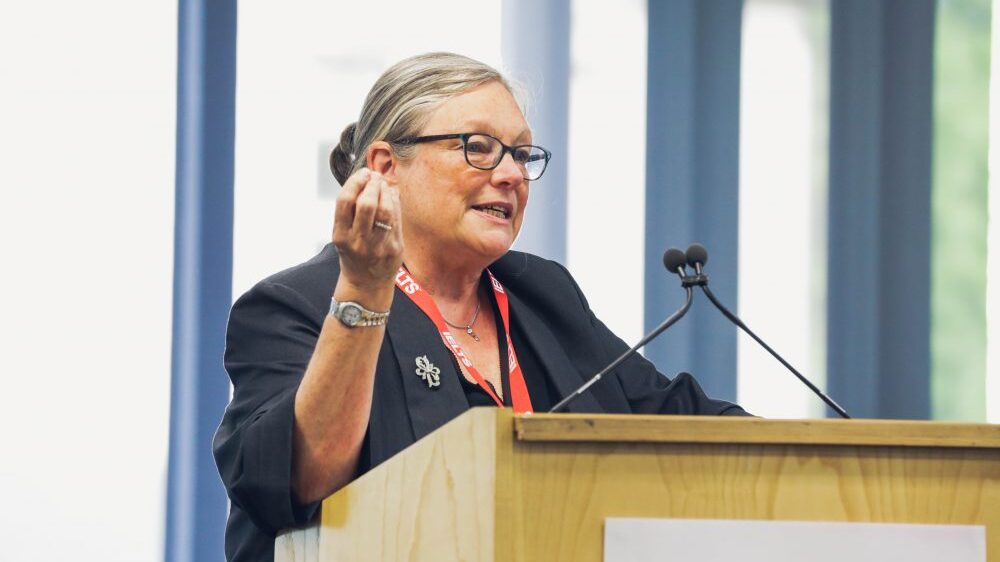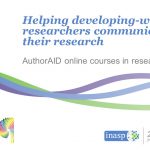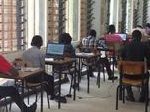
What is the biggest challenge in bringing Southern research to bear on global issues? INASP Trustees reflect
The world is facing many global issues that need to be tackled collectively – from climate change and health to sustainable economies and migration. Knowledge and evidence can help us tackle these issues with informed solutions. But we need to unlock the knowledge from across the world in order to find the best ways forward.
To celebrate INASP’s 25th Anniversary, we asked our Trustees to reflect on the biggest challenges in unlocking the potential of research and evidence generated in the global south to tackle worldwide issues.
Find out more about what our Trustees think in our 25th Anniversary videos:
The need for context-relevant knowledge
The Sustainable Development Goals set out ambitious targets to tackle global issues. However, strategies to achieve these targets must be made relevant to local contexts and this can only be achieved if development decisions are based on local knowledge.
“I think any knowledge that is specific and relevant is absolutely critical. The more one understands the context, the more one’s understanding of that context is based on mixed knowledge – not just scientific knowledge but also traditional knowledge, knowledge across different groups of people.” – Liz Carlisle, Director of Communications, International Institute for Environment and Development (IIED)
“Without the use of locally produced and honed evidence we are not going to have that universal approach to the [Sustainable Development Goals].”- Jo Beall, Executive Director, Education and Society, British Council and Chair INASP Board of Trustees
The vast wealth of Southern knowledge
There is a wealth Southern knowledge and research talent that needs to be tapped into in order to tackle global challenges.
“The South has a vast repository of knowledge… – a huge and a vast tradition of…, knowledge creation and dissemination that exists in the South.” – Sohail Naqvi, Vice Chancellor, Lahore University of Management Science
“We on the [African] continent are changing the narratives about the continent. The continent is not a dark continent. The continent is not a continent without capacity, the continent is not a continent without excellence, the continent is not a continent without people who can produce and change the continent. A generation of young researchers are growing up and they have been trained and equipped with all the skills and capacities to be excellent players.” – Tade Akin Aina, Executive Director, Partnership for African Social and Governance Research
The challenge of accessing and giving a voice to Southern knowledge
Despite this vast knowledge base and wealth of talent, Southern knowledge producers face difficulties in getting their work seen by decision makers and potential collaborators.
“The challenge is how do we access that knowledge, how do we use that knowledge, how do we give power to that knowledge…how does that piece of information, that understanding, that research from the country concerned, get used in it’s own environment, but more importantly get used elsewhere so that we have… global consistency to change.” – Liz
“[One challenge is the] complete lack of visibility of global southern expertise that already exists, and that exists both in an academic environment and an NGO environment…there is a real issue with just even knowing where to look, and where to find that [Southern] expertise.” — Felicity Jones, Global Deputy Director for Development at Institute for War and Peace Reporting
“What young researchers on the continent need is a way in which they are exposed in the greater world – the opportunity to use technology, create new mentors and engage with people.” – Tade
Creating an equal playing field between Northern and Southern research
The lack of visibility is an historical, systemic challenge that needs to be overcome.
“[There is a] systemic issue…about the academic currency of publishing [and] partnerships. It’s not an equal playing field – global Northern universities and academics are also under pressure to secure funding, to secure their own career trajectories, and there isn’t a prioritization or, really a valuing of true collaborative partnership building in academia.” – Felicity
“There are two things I [used to hear] at conference after conference [in Africa]. The first was ‘we do all the research, or data gathering, someone else writes the paper and they get the publication and the credit’. The other thing I used to hear was ‘we as African governments are fed up with – insert Northern institution – telling us what to do’.” – Jo
Opportunities for Southern researchers
Given the truly global issues the world faces, now is the time when Southern researchers can lead on the discourse on how to tackle them.
“There are many opportunities for the South to benefit from [current] discourse, and in fact lead on it and realizing that at the end of the day we are in this one world all together and that the world has progressed – always benefited – from the knowledge generated and applying it to another part of the world.” – Sohail
How INASP supports giving Southern knowledge a voice in tackling global issues
INASP believes Southern knowledge can help to tackle global issues and prides itself in working in collaboration with Southern partners to overcome the challenges of visibility and access.
“INASP addresses the problem of not having the evidence [for] an evidence based policy so [that] African governments and institutions can deliver their own evidence and not rely on other people.” – Jo
“[INASP’s] AuthorAID [programme helps get] over that initial barrier of really disseminating and supporting global Southern knowledge production.” – Felicity
“INASP is working with us to change the narrative about our scholarship, about our policy engagement and about our research uptake.” – Tade

 Previous Post
Previous Post Next Post
Next Post


